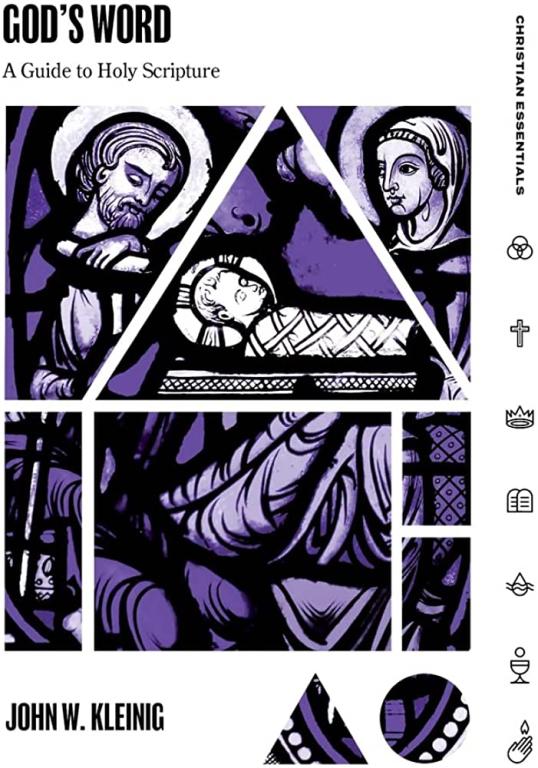I remember many years ago as a young graduate student when I first started reading the Bible. I was blown away by its power, by its depths and complexity, and by the impact it was having on me. Ever since, I have been reading the Bible every day, good habits being as hard to break as bad habits, working through it in different translations and studying it with different helps.
After many years, though, the Bible became so familiar to me that it lost some of its experiential luster. The regular reading was still doing me good–knocking me down and building me up, just as I needed–but reading it over and over was getting somewhat tedious.
Lately, though, my enjoyment of the Bible has been rekindled. Part of the reason is that I’ve been reading the King James Version, an evocative translation that keeps the mysteries of the original languages rather than flattening them in an attempt at clarity and making them sound modern, which they are not. Editing J. G. Hamann’s London Writings also reignited my love of Scripture through the infectious enthusiasm of a great mind who was finding himself changed by reading it. And now the translator of London Writings, the Australian theologian and Bible scholar John W. Kleinig, has poured gasoline on that flame with his new book God’s Word: A Guide to Holy Scripture .
This book, part of the Christian Essential Series from Lexham Press, is not just an explanation of the doctrine of Scripture, nor a how-to book about using commentaries and concordances. “I do not intend to set out an argument to prove anything about the Bible as God’s written word, let alone explain its divine nature and inspiration,” Kleinig writes. “That would be like trying to prove the value of good food. You can only really discover how tasty and nourishing and satisfying food is by eating it.” This is not a nutrition manual, a diet plan, or a recipe book. Rather, it is more like a mouth-watering restaurant review or a documentary on the Food Network, something that makes you hungry and alerts you to flavors you might never have tasted before.
The Bible is God’s word. That is to say, God speaks. The Father speaks, the Son speaks, and the Holy Spirit speaks–and in the Scriptures they all speak about Jesus. “All this makes up a single conversation of the Triune God with his people and them with him and each other,” Kleinig writes. “Since we have a record of that conversation in the Bible, we can listen in on it and join in with it” (p. 10).
Not only that, we are to “abide” in God’s word (John 8:31-32). In other words, it is a place to inhabit. To live in God’s word is to dwell in a place of truth, freedom, love, and security.
The human authors whom the Triune God inspires to record His word “speak many different words that do different things in different circumstances”–covenant words, words of institution, life-giving ordinances, prophetic oracles of either judgment or salvation (p. 13). Returning to the banquet analogy, Kleinig says to imagine a vast smorgasbord designed to nourish everyone in every situation. “Some of it may appeal to me. Some of it, I must admit, may not suit my all too limited and untutored taste. And much of it, sadly, may even repel me. Where should I begin?” He recommends beginning with Jesus, the Word made flesh, who alone can open the rest of the Scriptures to us (Luke 24:44-47).
Throughout, Kleinig emphasizes that “the Word of God is living and active” (Hebrews 4:12). It is “powerful and performative, effective and productive” (p. 22). Indeed, that can describe even human language. Far more does God’s language bring into being what it says, from the creation of the universe to the salvation of a soul.
Thus, the Bible is not just a record of history, a guide to life, or a collection of doctrines, though it is those things as well. It is a means of grace. Kleinig tells about how, as a young seminarian trying to preach on the parables, he realized that the point is not just trying to unpack what the text means, but to discern what Jesus does in the text.
The Word “is active not just in doing what it says but in energizing those who hear it,” Kleinig writes. “It acts on them and in them.” But the Word is not a magical incantation. “It did not energize all people to do God’s work, but only those who heard it as his word, received it as from him, accepted it as addressed to them, and believed in it as his word for them” (p. 112). Thus the role of faith.
The Word made flesh is conveyed in the written Word and in the proclaimed Word. Indeed, the risen and ascended Jesus fulfills His promise to be with us always through His presence in His word. This is to say, the Word is sacramental, a vehicle of the Holy Spirit intimately connected with baptism and the Lord’s Supper.
The book is a small one, just 157 pages of text, and yet its 14 brief chapters cover a wide range of topics regarding the Bible. Here are the chapter titles: I. An Invitation to a Banquet; II. The God Who Speaks; III. Words that Do What They Say; IV. Hearing Ears; V. Speaking with Authority; VI. The Word of Christ; VII. God’s Word Saves; VIII. God’s Word Gives Life; IX. God’s Word Nourishes; X. God’s Word Heals; XI. God’s Word Energizes; XII. The Ministry of the Word; XIII. God’s Written Word; XIV. God’s Amazing Word.
Each one of them is filled with passages that brightly illuminate their topics. For example, here is a broadly useful explanation of “mystery”:
Like many modern people, we tend to confuse mysteries with secrets. And so we explain them away. But a mystery is different from a secret. Even though both have to do with something that is hidden and unknown, a mystery differs from a secret in one important respect. A secret remains a secret only as long as you don’t know it. Once it is revealed, it ceases to be a secret. But a mystery remains a mystery even when it is revealed. In fact, the more you know about it, the more mysterious it becomes. (p. 126)
As if all of this were not enough, the book is also beautifully designed and illustrated.
John Kleinig, author of Grace Upon Grace: Spirituality for Today, has long been appreciated by confessional Lutherans. I am happy that Lexham Press has discovered him and is making him known among evangelicals and Christians more broadly.
This is a book to read, study with others, and give away.














